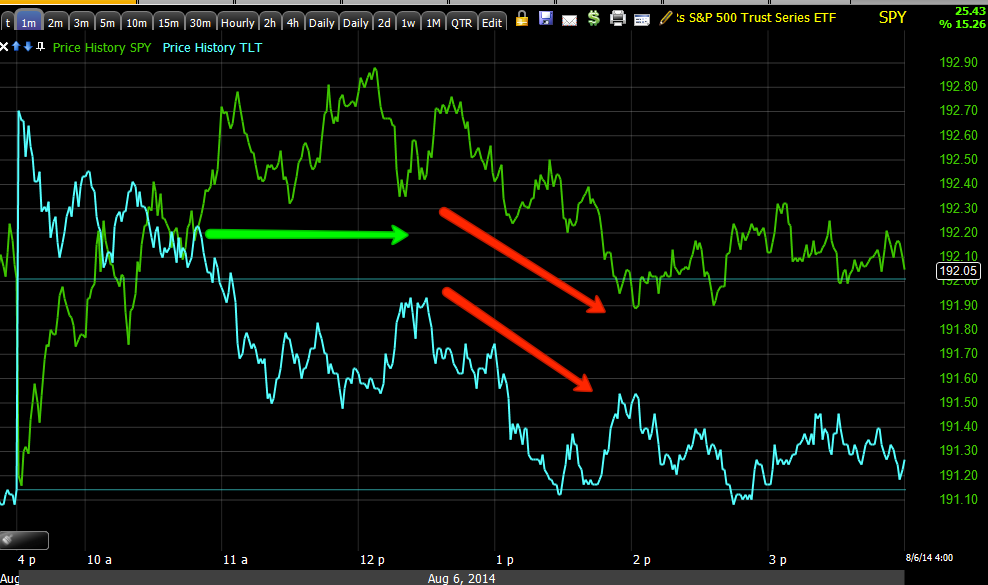Are Hugely Crowded Trades in the Euro in Oil in Many Bonds More Setting Stage for Major
Post on: 24 Январь, 2016 No Comment

+$0.42 to $46.49
Few people have been more bearish on the euro currency (or the yen) than me.
Nor have many been as firmly parked on the sidelines in gold or silver, with nothing more than a core, very long-term position in the metal.
Or how about crude oil? Is there any market on the planet more hated than black gold right now?
Just look at this weekly chart of oil futures:
You can obviously see the huge magnitude of the price decline in crude over the past few months. It’s on the order of the implosion during the 2007-09 credit crisis and Great Recession. It also makes the decline on the far left of the chart (in 1986, driven by a Saudi-led war against foreign oil producers … sound familiar? ) look small by comparison.
But what really stands out to me is the RSI — or Relative Strength Index — technical indicator at the bottom. You can see that by this one measure, momentum is now the most negative in the oil futures market than it’s been in the three-plus decades for which I have data. Other sentiment indicators are also at massively extreme levels … basically the worst on record.
Meanwhile, you can’t go more than a few hours without reading or hearing another story about how U.S. energy producers took out tens of billions of dollars in junk bond debt and high-risk loans to expand output. And now that prices of those bonds have already plunged (long after I said to sell ‘em!), the mainstream media is warning you about potential losses? Really?
I can’t say with 100 percent certainty that all of these trends — a falling euro, falling oil prices, falling emerging market and junk bond prices, and so on — are ending right here, right now. Nobody is that good.
“We’re very, very extended in a whole host of markets.”
But what I can tell you is that we’re very, very extended in a whole host of markets. What I can tell you is that sentiment is at huge extremes. And what I can tell you is that a handful of currencies are already starting to stabilize, as are a couple of investments that are sensitive to energy and commodity prices.
Just to pick one, punch up the Market Vectors Russia ETF (RSX). Notice that it hasn’t made a lower low along with crude? Nor has the iShares MSCI Brazil Capped ETF (EWZ). While I’m at it, have you seen the $100-an-ounce rally in gold prices since November? Or the multi-week bounce in the major agricultural commodities?
Maybe, just maybe, these are signs we’re going to see a reversal of some of the major trends that have dominated the markets for several months now. This morning, for instance, oil initially fell as low as $44.20 … but then reversed course late in the day and surged to almost $47. At the very least, it could be time to cash in some chips and hit the road if you’ve been riding them for all they’re worth!
So what do you think? Am I on to something here? Or do you think we’re headed even lower with the euro, with crude oil and with other commodity-sensitive ETFs? Is buying here a prudent bottom-fishing strategy? Or more akin to knife-catching?
Don’t hold back! Tell me and your fellow investors at the Money and Markets website when you have a minute.
Our Readers Speak
The energy markets are continuing to grab headlines everywhere, what with the largest moves in prices in decades unfolding before our eyes. That has you actively discussing the benefits and drawbacks.
Reader W.K. was pretty much in the “all benefit” camp, saying: “Everyone agreed that rising energy prices were a really bad thing in all the years up to last, even for some energy companies. How then, is it possible that decreasing energy prices are also bad?”
Reader Tim S. echoed those remarks, saying: “I really have a hard time feeling sorry for the oil monopoly complex. For years they have been over-charging for their products, claiming this or that, but always resulting in higher prices. Now as the pendulum swings the other way, suddenly it’s hurting the economy that oil prices are so low. What’s low?
“Seems like the mighty oil complex should have hedged their positions a little better during their good times! For the 88 percent of society that is putting a few extra bucks in their pocket because of less expensive gas prices, power to us!”
Reader J.S. noted the obvious savings at the gas pump, too, but added that they’re peanuts compared with other costs that average Americans face. The comments:
“Though a welcome development, many middle class folks in the private sector are being hit with sharply rising health costs be it with their premiums, deductibles and copays … or all three. Hence, I believe these rising costs are more than making up for decreasing energy costs, thus continuing a trend of a middle class and its buying power being under siege.”
Finally, Reader Jim pointed out that the cause of the oil price decline is much more important than the effect it has on our gas bills. His important warning:
“With regard to the oil price, we are focusing on the symptom rather than the disease. How could lower energy prices not help more than it hurts U.S. consumers? The problem is the reason oil prices are plunging.
“It is going down because Europe is going down, Indian growth is half what it was, the Chinese miracle is showing signs of slowing, etc. Demand is falling because world economic growth is faltering, very bad.”
His pithy summary? “Two dollar gas is great, a worldwide recession is not.”

No it isn’t, Jim, and that’s an important point to remember. But if you want my take, I think that people are freaking out way too much about the decline in oil — a decline that I believe could be very close to petering out for the reasons I highlighted earlier.
As always, make sure you head over to the Money and Markets website to add your thoughts on oil, corporate earnings, or anything else. I’ll do my best to follow up on as many topics as I can!
Other Developments of the Day
Why did oil prices fall as low as $44-and-change earlier today? Because the oil minister for the United Arab Emirates, Suhail Al Mazrouei, towed the OPEC party line today, saying the group wouldn’t cut output yet. But I think OPEC nations are getting squeezed so hard, they can’t keep this game up much longer.
UAE’s oil minister, Suhail Al Mazrouei, said OPEC won’t cut production … yet.
Washington D.C.’s Metro was hit with an apparent electrical fault late yesterday, causing a train to grind to a halt underground and smoke to fill a tunnel. One passenger died, while 80 were treated for smoke-related and other injuries.
In the wake of a severe media backlash, the White House admitted it should have sent someone more senior in the U.S. administration to France for the recent anti-terrorism march. Leaders of France, Germany, the U.K. Israel, and even the Palestinian President attended.
“We’re not that important!” That’s the argument the mega-insurer MetLife (MET, Weiss Ratings: A-) has been making to U.S. regulators — and is about to make before a U.S. district court.
Why? It was designated a “systemically important” institution by the Financial Stability Oversight Council. That designation makes it subject to more intense regulatory scrutiny, something the company doesn’t want.
Until next time,
Mike Larson
Mike Larson graduated from Boston University with a B.S. degree in Journalism and a B.A. degree in English in 1998, and went to work for Bankrate.com. There, he learned the mortgage and interest rates markets inside and out. Mike then joined Weiss Research in 2001. He is the editor of Safe Money Report . He is often quoted by the Washington Post. Reuters. Dow Jones Newswires. Orlando Sentinel. Palm Beach Post and Sun-Sentinel. and he has appeared on CNN, Bloomberg Television and CNBC.














